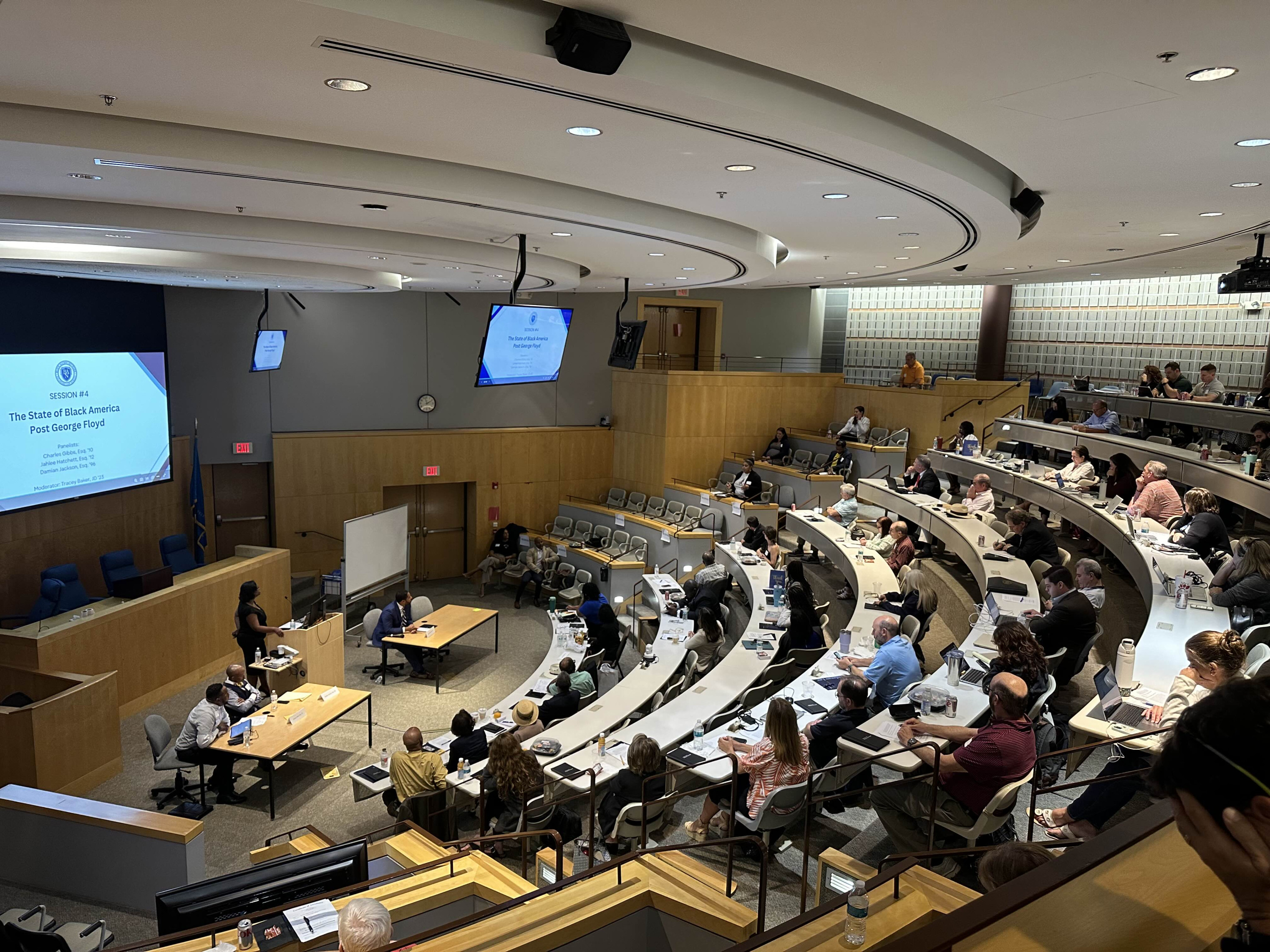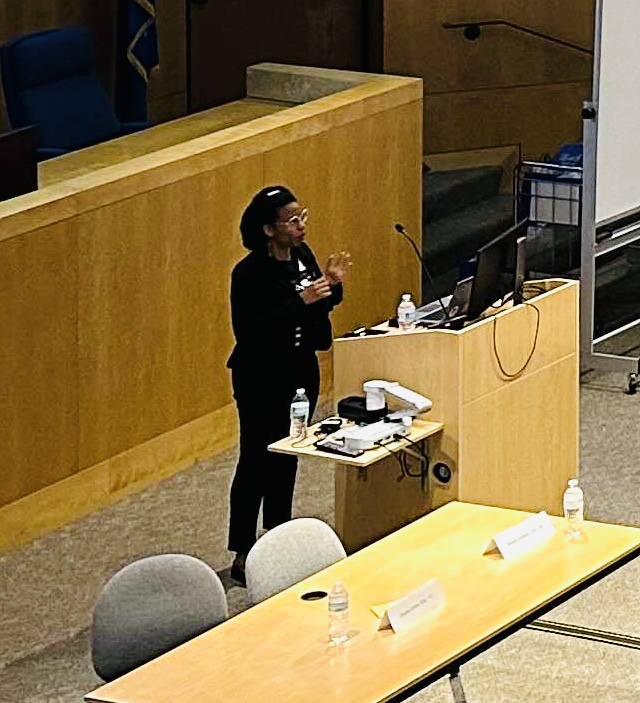Delaware Law School's inaugural Black Alumni Network event reinforces commitment to diversity, equity and inclusion
8/14/2024
 The Black Alumni Network, in collaboration with the Office of Alumni Engagement at Widener University Delaware Law School, recently hosted its inaugural all-day continuing legal education event, a powerful reflection of the law school's unwavering commitment to Diversity, Equity, Inclusion, and Belonging. The event brought together alumni to address some of the most pressing issues facing Black Americans within the criminal justice system and beyond, underscoring Delaware Law School’s dedication to equipping its community with the tools needed to protect those who cannot protect themselves.
The Black Alumni Network, in collaboration with the Office of Alumni Engagement at Widener University Delaware Law School, recently hosted its inaugural all-day continuing legal education event, a powerful reflection of the law school's unwavering commitment to Diversity, Equity, Inclusion, and Belonging. The event brought together alumni to address some of the most pressing issues facing Black Americans within the criminal justice system and beyond, underscoring Delaware Law School’s dedication to equipping its community with the tools needed to protect those who cannot protect themselves.
Event sessions delved into critical contemporary challenges, from the legal implications of facial recognition technology in criminal defense to the far-reaching impact of the U.S. Supreme Court's decision in Students for Fair Admissions v. Harvard, which marked the end of race-conscious college admissions practices. This gathering of minds and voices exemplified Delaware Law School’s ongoing efforts to provide a platform for essential conversations, fostering a legal community dedicated to justice, equity, and inclusion.
Criminal Defense and Facial Recognition Technology
Moderated by Stacey Anderson ‘20, a legal policy analyst at the Innocence Project, the session on facial recognition technology offered an in-depth exploration of the ethical and legal implications of this rapidly advancing technology. Panelists and attorneys Clare Garvie, Mitha Nandagopalan, and Anton Robinson discussed the increasing use of the  technology by law enforcement, highlighting its potential for bias and wrongful identification. They provided attendees with strategies for challenging the reliability of it in criminal cases, emphasizing the importance of staying informed on emerging technologies in the pursuit of justice.
technology by law enforcement, highlighting its potential for bias and wrongful identification. They provided attendees with strategies for challenging the reliability of it in criminal cases, emphasizing the importance of staying informed on emerging technologies in the pursuit of justice.
Impact of the Anti-Affirmative Action Ruling
Jocelyn Mendez ‘21, led a session that examined the consequences of the U.S. Supreme Court’s landmark decision to end race-conscious admissions practices. Panelists Nicole Barkley ‘04 and Craig Green, discussed the historical context of affirmative action and the evolving landscape of Diversity, Equity, and Inclusion initiatives in higher education. With the ruling still fresh, this session provided participants with a comprehensive understanding of the challenges and opportunities that lie ahead for institutions and legal professionals committed to advancing DEI in a post-affirmative action world.
The State of Black America Post-George Floyd
Four years after the tragic death of George Floyd, this session, moderated by Tracey Baker ‘23, explored the current state of Black America and its relationship with the criminal justice system. Panelists Charles Gibbs ‘10, Jahlee Hatchett ‘12, and Damian Jackson ‘96, reflected on progress made since Floyd’s death and the ongoing challenges faced by Black Americans. The discussion was a poignant reminder of the enduring impact of systemic racism and the critical need for continued advocacy and reform.
Dean Todd Clark’s address to attendees resonated with the event’s central theme of collective responsibility and action.
“At Delaware Law School, we believe in the power of ‘we.’ This isn’t just about individual success; it’s about bringing others along on the journey,” he said, referring to the bar exam and other large issues. “Our mantra, ‘We will pass the first time,’ is a testament to the idea that no one succeeds alone. We are a community, and together, we will overcome any obstacle.
He continued, “I challenge each of you to look around this room and recognize the strength in our collective. Don’t just bring yourself to the fight—bring someone with you. This is a ‘we’ at Delaware Law School. We are committed to giving our students the tools they need to stand up against injustices, and your continued involvement is crucial. The best gift you can offer our students is your time, talent, and treasures. Together, we can make a difference.”
Clark’s words served as a powerful call to action, encouraging alumni and current students to stay engaged, support one another, and continue the fight for justice long after they leave the classroom.
The Black Alumni Network's event was more than just an educational experience—it was a reaffirmation of Delaware Law School’s commitment to fostering a diverse and inclusive legal community. By engaging in these critical discussions, the law school continues to lay the foundation for future leaders who are not only well-versed in the law but also deeply committed to challenging injustice and effecting meaningful change in society.
As Delaware Law School looks to the future, events like it serve as a reminder of the importance of ongoing dialogue, education, and action in the pursuit of a more equitable and just world. The law school remains dedicated to its mission, ensuring that every student and alumnus is equipped with the knowledge, skills, and support needed to make a lasting impact.
